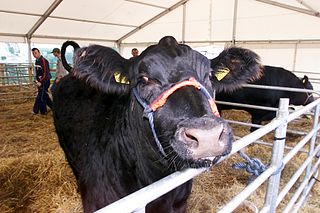 Usually, animal rights groups fight for bills like the one currently being pushed through NH., regarding livestock abuse. Why then are six animal-rights groups, including the Humane Society of the United States and the American Society for the Prevention of Cruelty to Animals, opposing this bill?
Usually, animal rights groups fight for bills like the one currently being pushed through NH., regarding livestock abuse. Why then are six animal-rights groups, including the Humane Society of the United States and the American Society for the Prevention of Cruelty to Animals, opposing this bill?
Behind NH House Bill 110 and Reporting Livestock Abuse
According to Republican Rep. Bob Haefner, the bill’s prime sponsor, the purpose of the bill is two fold:
- To get police involved in potential livestock abuse as quickly and early as possible
- Discourage advocacy groups from using videos or photos of abuse for promotional means
Haefner was motivated by his frustration at advocacy groups that record examples of abuse and hold onto these recordings without ever informing law enforcement. Instead, these recordings make their way onto TV or the internet.
The bill would require any person or entity who records the abuse of farm animals to report it to police within 24 hours and turn over the evidence.
Advocacy groups like the Humane Society fear that the passing of this bill will punish whistleblowers and suppress documented evidence that would help push their agendas of preventing cruelty to animals.
Opponents of HB 110
There is bi-partisan support for this bill, which is co-sponsored by two New Hampshire Democratic representatives. However, there is also staunch opposition by some respectable names in animal welfare:
- Humane Society
- ASPCA
- Farm Sanctuary
- Mercy for Animals
- Compassion Over Killing
- Animal Legal Defense Fund
With these type of opponents, one has to question how effective (or harmful) this bill would be if passed. Each of the groups in the list above fight passionately for animal rights. However, Haefner declares his motivation for HB 110 is to promote animal rights. So where’s the disconnect?
When is it okay not to report animal abuse?
Is it fair to allow animal abuse to go unreported for the sake of spreading a message?
On the flip side, is it more helpful or harmful to pass a law that could discourage people from spreading that message?
These questions are not easy to answer. Both sides have intentions in the right place, but in the end, what will be the best of animals?
Visit NH HB 110, and download it for free. Read the Humane Society’s press release regarding this bill here.






As I see it, the problem is number 2. Law enforcement does not always take animal abuse seriously nor do they always feel it’s important enough to take time from other crime to deal with it. That’s in spite of the fact that animal abusers often go on to abuse people.
By discouraging publicity by animal advocates, they give an edge to those who would prefer to ignore it – including law enforcement.
Respectable animal welfare organizations in that list? THERE ARE NONE. Every organization in that list is “animal rights” led and steeped in the sociopathic AR philosophy that animals are equal to humans and should not be “used” for any reason, including pets. Of course, they can’t come right out and shout that, or people wouold recognize them for the fringe “true believers” that they are! Animal rights = destroy the human/animal bond and no animal use. Animal welfare = promote the best human/animal bond and use animals humanely and respectfully. BIG DIFFERENCE which the author of this article needs to understand and reflect in future writings, instead of the naive prattle that these AR-led “factory fundraisers” have any true humane objective–whether that’s towards animals or humans.
Marcy – you’re an idiot. If you walk into the office for any of those groups you will notice that every other person has dogs and brings them to hang out at work. Maybe 1 in 20 animal rights supporters want to abolish companion animals entirely. (Though we do want to stop breeding animals for profit.) Further, no group thinks animals “are equal” to humans, just that they are more equal than the law gives them credit.
Regarding the reporting law — the proponent of the bill is misguided. Animal rights groups usually do show those videos to law enforcement authorities who in turn decline to prosecute because they don’t care enough about farm animals. The problem with the bill is that it requires reporting within 24 hours. This hampers the ability to gather as much credible evidence of cruelty as possible by imposing a duty to jeopardize the investigation after one day. If the time was extended to one month I think it would be much much less problematic.
[…] Animal Rights Groups Oppose Bill Regarding Livestock Abuse […]
Comments are closed.